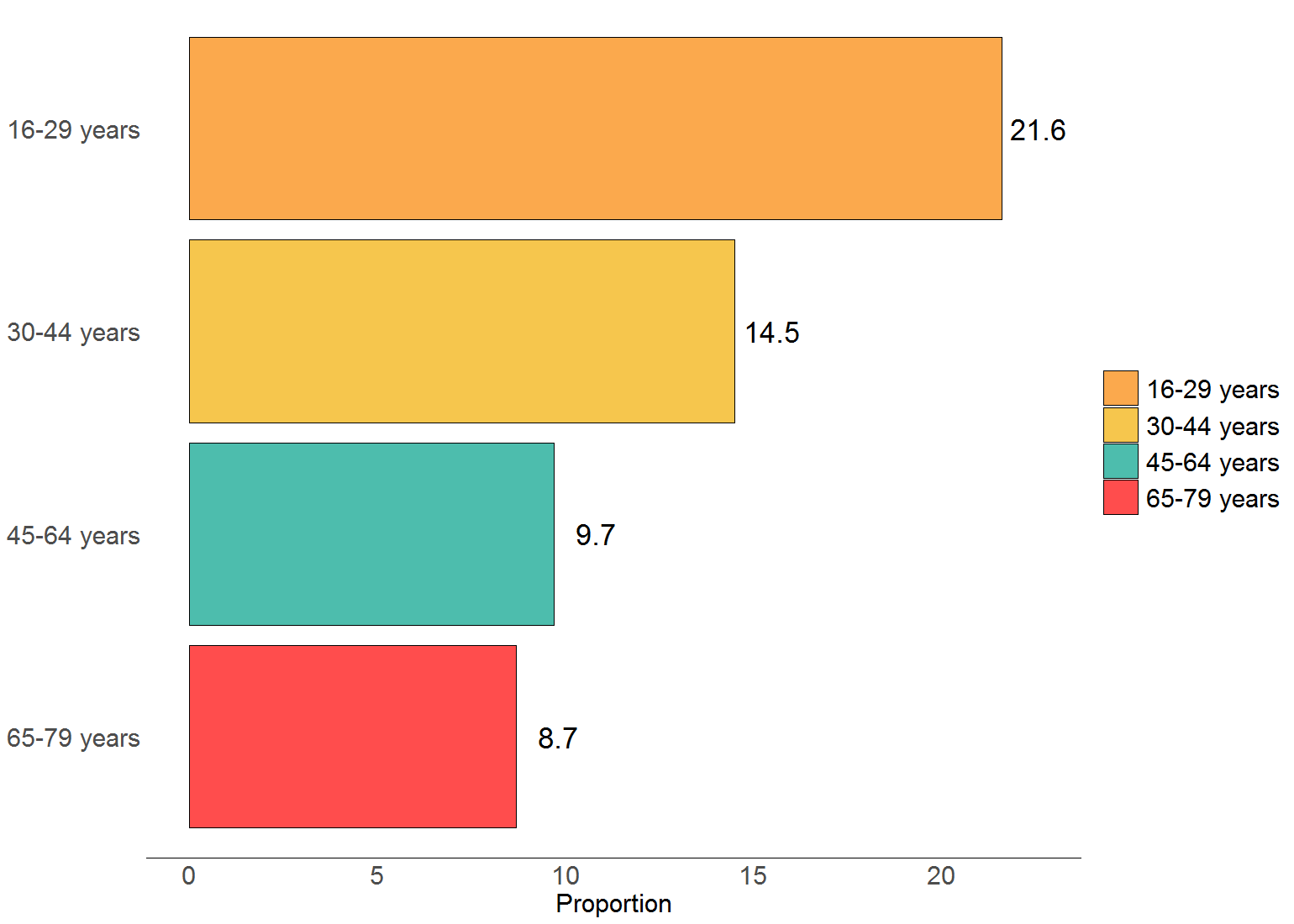Young people are feeling lonely during the corona crisis
Researchers from the Department of Public Health at the University of Copenhagen are investigating how people in Denmark are experiencing and managing the corona crisis. This week, we are reporting on findings about loneliness amongst different age groups. In collaboration with Epinion, we have asked approximately 100 people between the ages of 16 and 79 to answer a questionnaire every three days from 20 March to 16 April, and then once every week until the end of June 2020. The results below are based on responses from 1,545 people.
The UCLA Loneliness Scale is a widely used and recognised instrument for measuring loneliness; in our study, we used a shorter validated version of the UCLA scale called T-ILS. Survey participants were asked how often they experience feeling lonely (i.e., whether they missed having company, felt left out, and felt isolated). Based on previous studies, individuals who score high (≥ 4) on the T-ILS scale (0–6 points) were defined as being lonely.
Figure 1. Loneliness measured within four age groups
Click on the figure to enlarge
The figure shows a generally high level of loneliness amongst all age groups. When compared to the latest data about loneliness in Denmark (Health Surveys 2017), in which loneliness was measured in four of the five Danish Regions using the T-ILS scale, the proportion of individuals in each age group who reported feeling lonely appears to be higher during the current crisis.
Amongst our survey respondents, approximately 9% of people between age 65–79 reported feeling lonely during the crisis. Comparing figures from the 2017 reports, only about 4–5% of the people between age 65-79 reported feeling lonely before the crisis.
With people between age 45–64 who answered our survey, about 10% reported feeling lonely during the corona crisis. This figure was 6–9% before the crisis.
Amongst people between age 30–44, 15% reported experiences of being lonely during the crisis. This is more than before the corona crisis, when the figure was 8–10%.
The most notable result is a very high incidence of loneliness amongst the youngest age group (age 16–29), with almost one in four respondents (22%) feeling lonely during the crisis. This is also an increase compared to before the crisis, with figures from the 2017 Health Surveys indicating that 10–14% of young people felt lonely.
Access to social communities is crucial for young people’s development. For many, their usual communities have become significantly restricted during the corona-related lockdown of society. At the same time, adolescence and early adulthood is a time when many young people move away from their families and establish independent lives, and a large proportion of young people in Denmark live alone. Thus, young people represent a particularly vulnerable group in terms of loneliness during the corona crisis. For a more thorough review of loneliness among young people (before the crisis), please see the Mary Foundation’s report from 2019.
This project has partnered with the Danish newspaper Politiken, which is publishing an ongoing series of articles about the corona crisis along with our research results. You can read the third article at politiken.dk.

